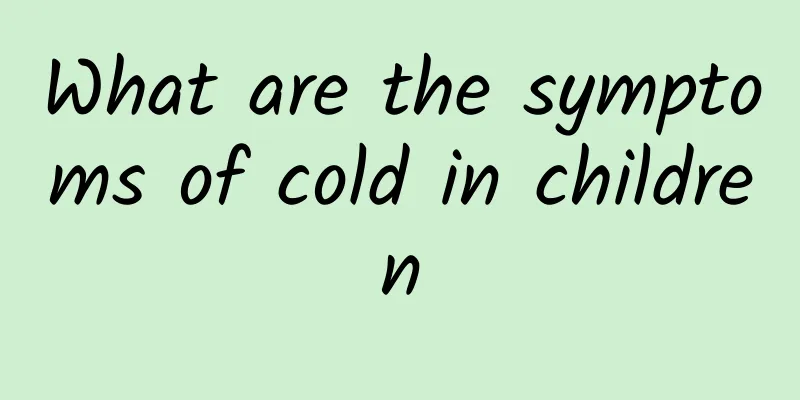Causes of high neonatal jaundice

|
1. There are too many red blood cells in the newborn's body. After the red blood cells are destroyed, too much bilirubin is produced. Bilirubin is the direct cause of jaundice, so the newborn will have high jaundice. 2. The metabolism of bilirubin requires the participation of liver enzymes in the liver. The liver function of newborns is not very perfect, which leads to insufficient secretion of liver enzymes, resulting in untimely excretion of bilirubin and high jaundice. 3. The excretion of bilirubin requires the participation of the bile duct. The bile duct function of newborns is not yet perfect, so bilirubin accumulates in the body and cannot be excreted in time, resulting in excessive bilirubin and high jaundice. 4. Bilirubin can also be excreted from the feces, but the meconium of newborns is relatively viscous, which makes the excretion of bilirubin not very smooth, resulting in excessive bilirubin in the newborn's body, leading to high jaundice. 5. In addition, the incompatibility of blood types between mother and child can also cause bilirubin to accumulate in the newborn's body and cannot be excreted. In addition, pathological jaundice may be caused by neonatal diseases, such as neonatal asphyxia, premature birth, infection and other factors. Bacteria can cause excessive neonatal jaundice. 6. Breastfeeding can also cause bilirubin to accumulate in the body of newborns, resulting in high levels of jaundice in newborns. Jaundice in children and the dangers of high neonatal jaundicePhysiological jaundice in newborns can disappear on its own, but pathological jaundice is a group of diseases caused by many reasons and must be discovered and treated as early as possible. Newborns with severe jaundice should be alert to the occurrence of kernicterus, especially immature infants. The younger the age, the higher the incidence rate. Generally, within 12-48 hours after the onset of severe jaundice, symptoms such as mental depression, drowsiness, weak sucking, decreased muscle tension, vomiting, and refusal to eat milk may appear. If treated in time, they can recover completely. Neonatal physiological jaundice: It was previously believed that no treatment was necessary. In view of the current promotion of eugenics and improving population quality, special attention should be paid to the following points: 1. Start breastfeeding early to speed up the excretion of meconium. 2. Hunger, hypoxia, constipation, dehydration, acidosis, cephalohematoma, etc. can aggravate physiological jaundice and should be treated. Hypercholesterolemia: The main harm is the occurrence of kernicterus. In the study of kernicterus, it was previously believed that indirect bilirubin was fat-soluble and lipophilic. In its free state, it has an affinity for brain cells rich in cephalin, and can easily pass through the blood-brain barrier to damage nerve nuclei and cause kernicterus. Regardless of the cause, pathological jaundice can cause "kernicterus" in severe cases, which has a poor prognosis. In addition to causing damage to the nervous system, severe cases can cause death. Therefore, prevention of neonatal pathological jaundice should be emphasized, such as preventing toxoplasmosis and rubella virus infection during pregnancy, especially in the early stages of pregnancy; preventing sepsis after birth; and vaccinating newborns with hepatitis B vaccine at birth. |
>>: What causes jaundice in adults?
Recommend
What are the symptoms of baby pneumonia? Four common symptoms of childhood pneumonia
What are the symptoms of baby pneumonia? There ar...
What are the most common causes of malnutrition in children?
What are the most common causes of malnutrition i...
Is it normal for a child to cough when he has chickenpox?
Whether it is normal for a child to cough when ha...
What are the methods for examining acute laryngitis in children?
What are the methods for checking acute laryngiti...
Can children with pneumonia not eat protein? Children with pneumonia should follow three dietary principles
Children's bodies are relatively fragile and ...
What fruits are good for children with diarrhea? These fruit recipes are suitable for children with diarrhea
Clinically, pediatric diarrhea is often related t...
Rehabilitation training for congenital poliomyelitis symptoms
After the onset of polio, the child's legs wi...
How many days does Kawasaki disease usually last in children?
Treatment of Kawasaki disease in children usually...
What are the characteristics of people with low IQ?
People with low IQs often display certain charact...
How to care for neonatal jaundice? What is the jaundice value of a six-day-old baby?
The jaundice value of the baby six days after bir...
How to care for children with pneumonia in winter? Two key points to determine infant pneumonia
Winter is very harmful to babies, especially chil...
What are the symptoms of patent ductus arteriosus in newborns?
The main symptoms of patent ductus arteriosus in ...
What should you pay attention to when your child has a viral cold? 9 things to pay attention to when your child has a viral cold
Viral colds include: common cold, influenza and v...
How to treat a five-month-old baby's cough and runny nose? What should I do if my five-month-old baby has a cough and runny nose?
A five-month-old baby with a cough and runny nose...
Diagnostic criteria for early childhood pneumonia
In fact, there are many diseases that have simila...









